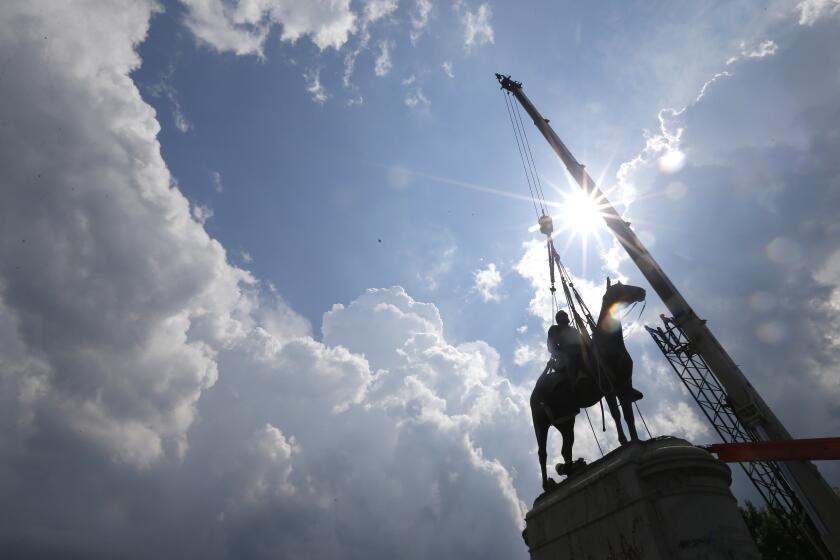One Vote the State Desperately Needs : Washington is so close to truly helping cities
Americans are worried about crime. They want more prisons, more police and anything else that will make them feel safer. The $33-billion federal omnibus anti-crime bill promises help, but an almost unfathomable alliance between political opposites in the House is holding up this legislation. One prays that good sense will prevail and that by Wednesday this bill will be closer to the President’s signature.
A powerful Democratic voting bloc against the next vote on the bill includes gun-control opponents--mostly from rural districts--and at least half of the Congressional Black Caucus, who are protesting the truly unfortunate loss of the racial-justice act, which would have allowed the use of statistics to prove racial discrimination in death-penalty challenges. Caucus members are standing on principle because the bill expands the death penalty and African Americans are disproportionately sentenced to die. But, admirable as its stand is, the caucus risks billions of dollars earmarked for cities, where most of their constituents live and suffer disproportionately from crime.
Some opponents remain open-minded, like Rep. Julian C. Dixon (D-Los Angeles). He is reassessing his position. His reason is admirably pragmatic: He has tallied up everything in the bill for California crime-prevention programs and law-enforcement efforts. It adds up to $900 million.
Unfortunately, other opponents will never compromise. The National Rifle Assn. and its allies hate the assault-weapons ban, which, in spite of their earlier efforts, passed both the House and Senate. Championed by Sen. Dianne Feinstein (D-Calif.) the ban would prohibit 19 types of military-style assault weapons. It is stronger than the California assault-weapons ban because the federal prohibition would outlaw the generic features typical of military-style arms, including folding stocks, pistols grips and high-volume detachable ammunition magazines. That would close a loophole in state law, which allows manufacturers simply to change model numbers or alter individual weapon design.
Feinstein’s opponent in the current Senate race, Rep. Mike Huffington (R-Santa Barbara), voted for the assault ban in the House. But, as Dixon and others have been, he is now said to be undecided on the key procedural vote needed to allow the bill to advance to a final vote in Congress. His support would greatly benefit California, which could not otherwise afford 10,000 new cops, thousands of new prison cells, new military-style prison boot camps, special drug courts, additional treatment for nonviolent drug offenders and other programs.
The White House wants this anti-crime bill badly, and is mounting a full-court press with the help of police chiefs, prosecutors and mayors. Any Californian concerned about crime should also weigh in--urging the state’s House members to support it.
More to Read
Get the L.A. Times Politics newsletter
Deeply reported insights into legislation, politics and policy from Sacramento, Washington and beyond. In your inbox three times per week.
You may occasionally receive promotional content from the Los Angeles Times.






